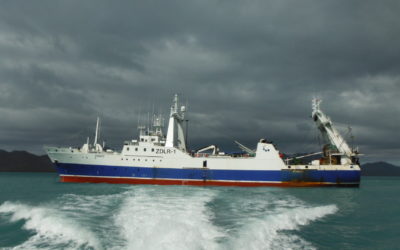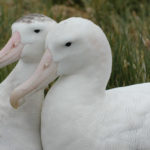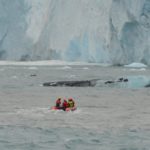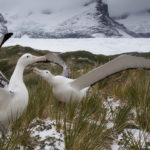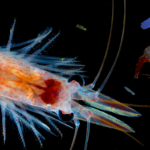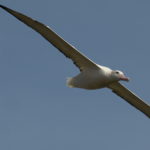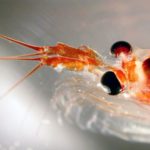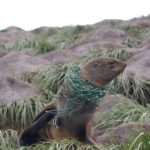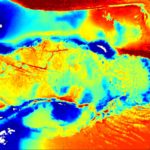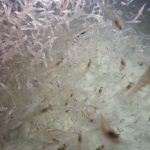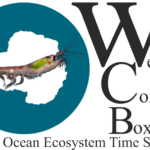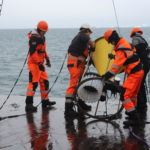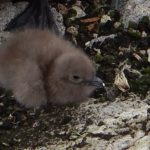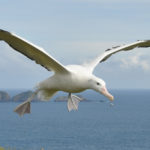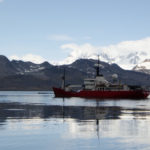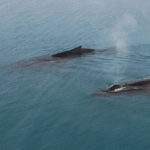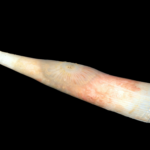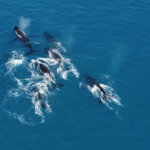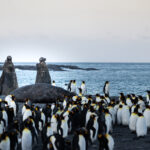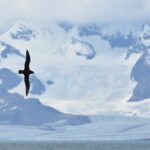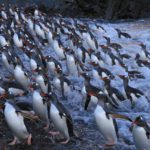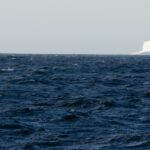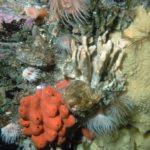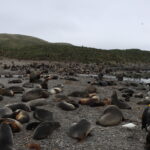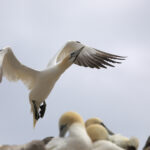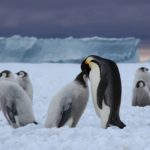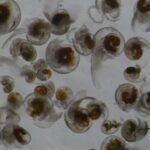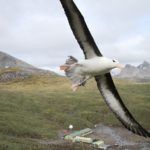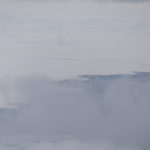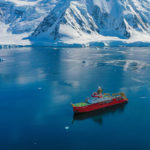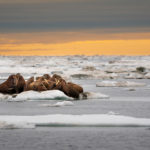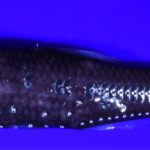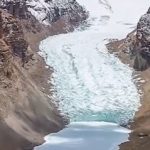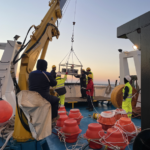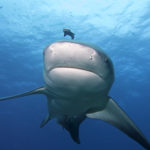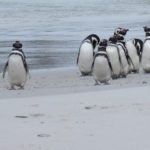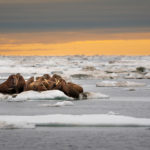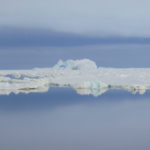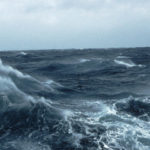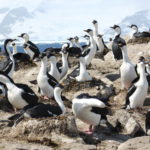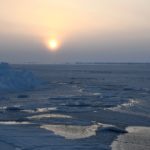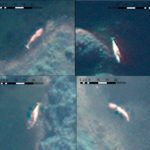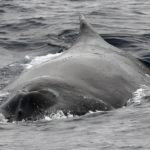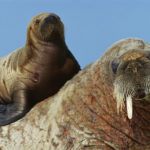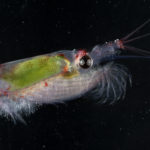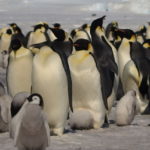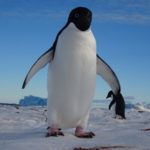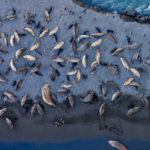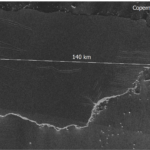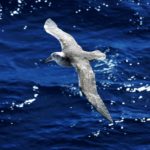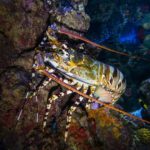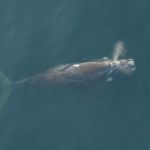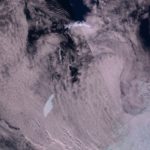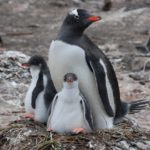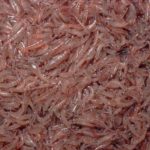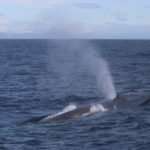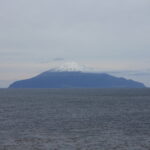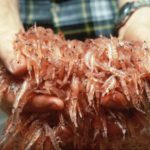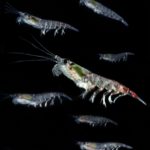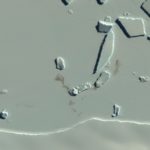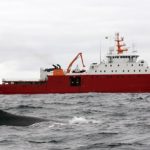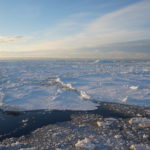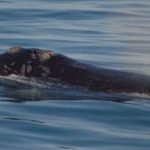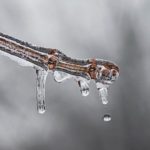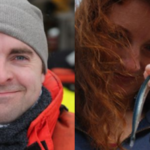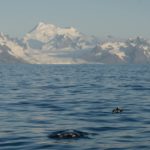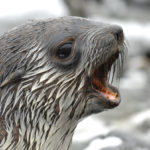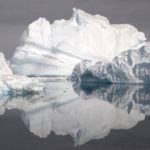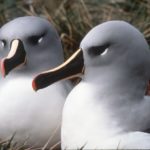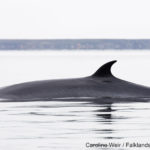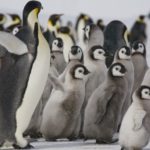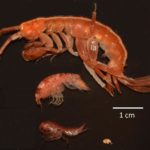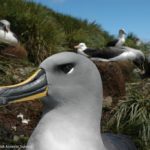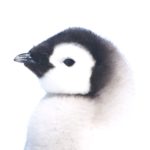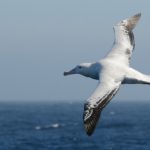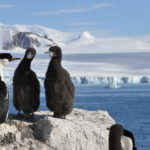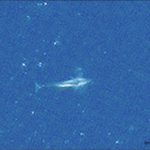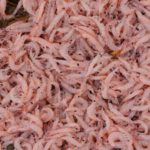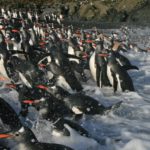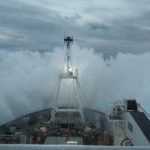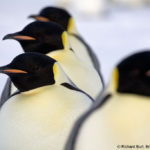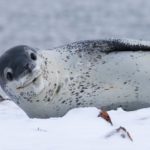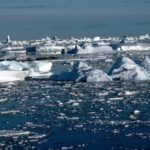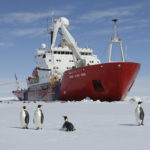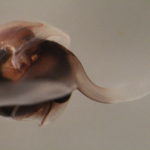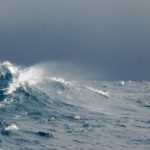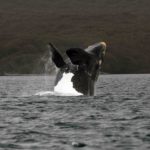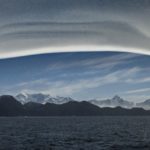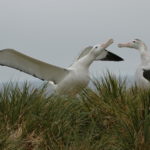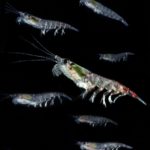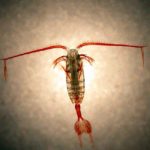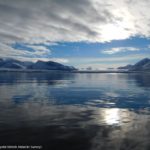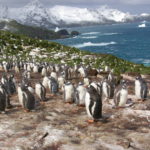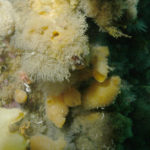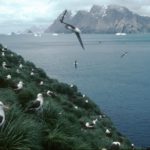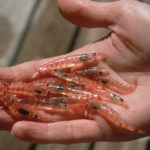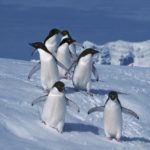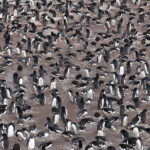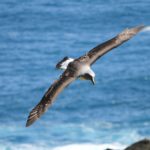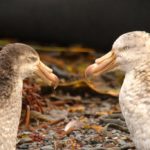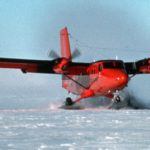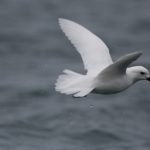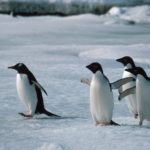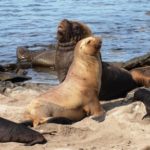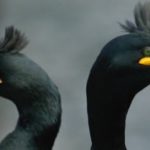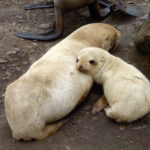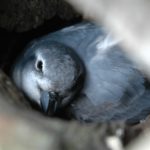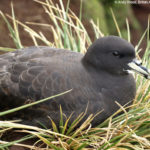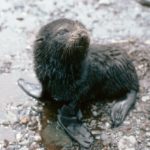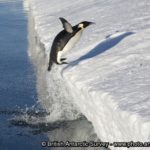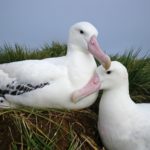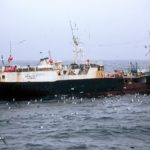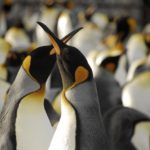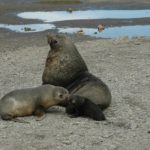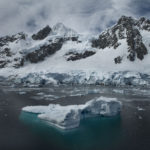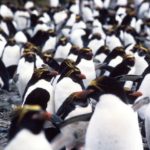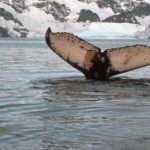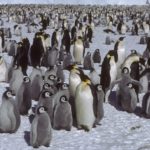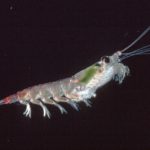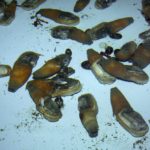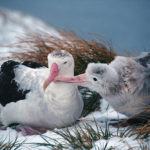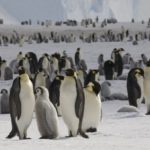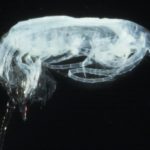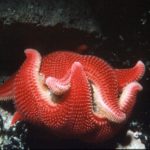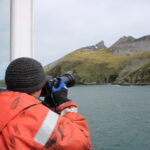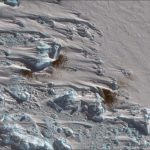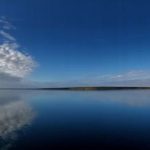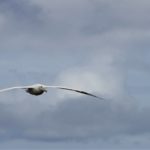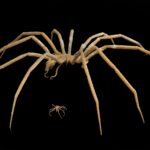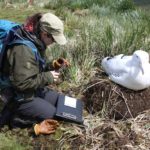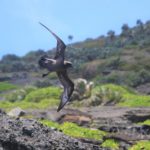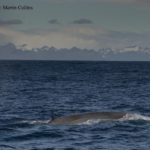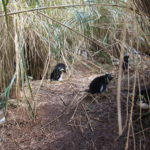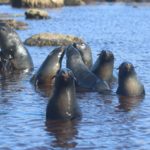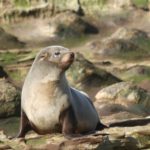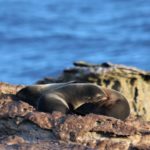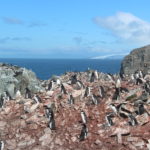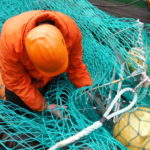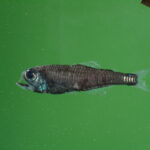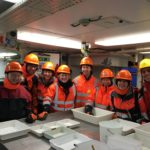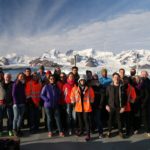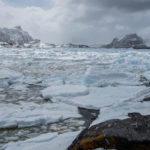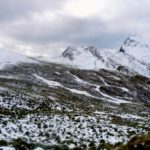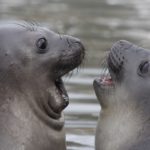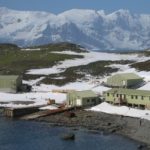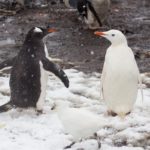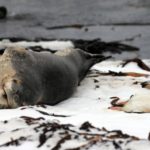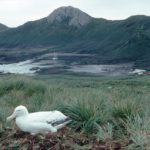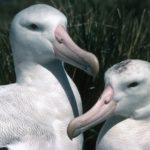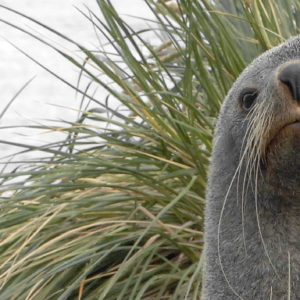Ecosystems team
Our ambition
The scientific goal of our team is to understand the combined impacts of global climate-driven change and commercial fishing on polar marine ecosystems. Our research provides fundamental insight into the response of species and ecosystems to change that enable us to project and detect their future responses. This work is critical to the development of conservation and ecosystem-based management strategies and will contribute to the development of Government policy.
Our research is focused on understanding the effects of change on whole ecosystems from microbes to whales and from local to circumpolar ecosystems. Our research groups consider different aspects of polar ecosystems and the services they provide: (i) the Ocean Ecosystems team examines the ecology of pelagic and mesopelagic organisms, such as copepods, krill and myctophid fish; (ii) the Higher Predators team focus on population dynamics and behavioural ecology of higher trophic level organisms such as penguins, flighted-birds, seals and whales; (iii) the Conservation and Management team considers the impact of both natural and man-made pressures on the Southern Ocean ecosystems and advises on policy to minimise these impacts. All three teams are inter-dependent and work collectively to meet the wider goals of the Ecosystems team. Our innovative multidisciplinary approach, combined with international leadership and partnerships, ensures that we continue to strengthen this area of globally important research.
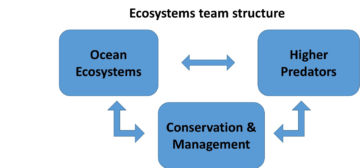
Team priorities
Science
- Understanding the life-cycles of polar marine species. To develop a quantitative understanding of the life-cycles, distribution and abundance of key species.
- The structure and functioning of polar ocean ecosystems. To understand the biological-physical-chemical interactions that determine the structure and functioning of ecosystems from local to circumpolar scales from a food web perspective.
- Impacts of variability and change. To understand the multiple drivers of change and the response of individual species and whole ecosystems.
- Modelling ecosystems and future change. To develop models of key species and ecosystems for projecting the impacts of future change on polar ocean ecosystems.
- Conservation in areas of rapid change. To use our understanding of the interactive effects of harvesting and climate-driven change to develop sustainable management and conservation approaches
Technology, innovation and training
- Conduct large-scale multidisciplinary field experiments from ships and land-bases and develop and deploy advanced technology and autonomous systems for biological-oceanographic and ecological studies.
- Develop innovative multidisciplinary approaches, encompassing genetics, biology and ecology of marine organisms (from plankton to the highest predators), biogeochemistry, oceanography, fisheries and climate science.
- Targeted numerical modelling studies and analyses of long-term data series.
Influencing and leading international programmes
- Work with national and international partners in Antarctic and Arctic research, including the Scientific Committee on Antarctic Research (SCAR), the Arctic Council and the International Arctic Science Committee (IASC).
- Work in partnership with international partners and institutions to gain deeper understanding of human impacts (e.g. fisheries) on polar ecosystems, particularly through the Commission for Conservation for Antarctic Marine Living Resources (CCAMLR) in the Southern Ocean.
- Lead the international Integrating Climate and Ecosystem Dynamics in the Southern Ocean programme (ICED) linking ecosystem and climate studies, developing links to the Intergovernmental Panel on Climate Change (IPCC) and the Intergovernmental Platform on Biodiversity and Ecosystem Services (IPBES).
- Through our role in ICED, input polar perspectives into global science programmes, including the International Geosphere-Biosphere Programme’s (IGBP) Integrated Marine Biogeochemistry and Ecosystem Research (IMBER) programme, the Scientific Committee on Ocean Research (SCOR) and Future Earth.
Stakeholder engagement
- Produce essential scientific advice to underpin the development of UK government (Foreign Commonwealth and Development Office, FCDO, and the Department for Environment, Food and Rural Affairs, DEFRA) and international conservation and management policies for the sustainable management of fisheries and human impacts in polar ocean ecosystems
- Provide critical scientific evidence and advice to shape international policy development within the Commission for Conservation for Antarctic Marine Living Resources (CCAMLR)
- Inform the Intergovernmental Panel on Climate Change (IPCC) and the Intergovernmental Panel on Biodiversity and Ecosystems Services (IPBES)
Public engagement in research
- Disseminate our findings via publication in the highest-impact journals, through presentations in leading national and international forums
- Participate in educational, media, business and stakeholder engagement activities.
BIOPOLE
Overview Climate change is proceeding faster at the poles than any other region, with sea-ice retreating, glaciers melting and biotic communities being invaded by sub-polar species. These changes are affecting …Bycatch risk of wandering albatrosses from radar detection
Wandering albatrosses are threatened by bycatch. Populations at South Georgia have declined catastrophically since the 1960s due to incidental mortality (bycatch) in fisheries (Pardo et al. 2017) [1]. This led …CUPIDO
CUPIDO aims to address: what is the role of zooplankton in promoting the transport of plastic in the ocean? and how this plastic transport interferes with zooplankton's ability to store carbon in the deep ocean?Higher Predators – Long-Term Science
The British Antarctic Survey carries out Long Term Science that measures changes in Antarctic ecosystems and seeks to understand the underlying drivers and processes. Marine predators are sensitive to changes …KRILLBASE
KRILLBASE is a data rescue and compilation project which aims to improve the availability of information on two of the Southern Ocean’s most important zooplankton taxa: Antarctic krill (Euphausia superba) …Long term monitoring of plastics
This long-term study monitors the impact of marine plastics and other debris on breeding seabirds at Bird Island. Researchers have monitored the levels of marine plastics and other material from …Oceanographic models for the Scotia Sea
Development of regional models to examine the detailed oceanography of island shelves and surrounding regions.ParaKrill
Krill are essential components of Antarctic ecosystems – they are important prey for fish, seals, penguins, and whales, and they influence carbon and nutrient cycling. This keystone role of krill …POETS-WCB
The main deliverable of the Western Core Box (WCB) is a consistent unique time series of mesoscale distribution and abundance of macro-zooplankton and micronekton, and an understanding of the physical …Science-Policy Challenges in Polar Conservation and Management
The British Antarctic Survey and the Cambridge Conservation Initiative (CCI) are convening a series of half day workshops focused on the science-policy interaction within highly topical conservation and management issues. …Scotia Sea open-ocean biological laboratories
Sustained ocean observing programmeSkua monitoring at Rothera
The small population of south polar skuas (up to 25 pairs) at Rothera Point has been studied since the late 1990s. The initial intention was to monitor possible impacts of …Spatial Segregation of Seabirds at South Georgia
Seabirds are amongst the most globally threatened birds, often as a consequence of incidental mortality (bycatch) in fisheries [1] [2]. At South Georgia, wandering albatrosses have declined since the 1970s [3], and are listed …Wildlife from Space
Many populations of wildlife are remote, inaccessible or difficult to monitor. The advent of sub-metre, Very-High-Resolution (VHR) satellite imagery may enable us study these animals in a much more efficient …Winter Krill at South Georgia
The Winter Krill project is a Darwin Plus project, funded by Defra, and its activities are focussed on South Georgia (SG), which is part of the UK Overseas Territory (OT) …Scientists study whales and fish to protect South Georgia’s marine ecosystem
31 January, 2025
Scientists on the remote sub-Antarctic island of South Georgia are working to better understand the rich marine life that inhabits the region. This month teams are focusing on two major …
New deep-sea mollusc species co-habits with anemone
3 December, 2024
A new species of tusk shell, a burrowing marine mollusc, has been discovered in deep, North Atlantic waters by scientists from British Antarctic Survey and the Senckenberg Society for Nature …
Whale-ship strikes reduced if 2.6% of ocean made safer
22 November, 2024
A new study examines the risk to whales from ship strikes – the leading cause of death worldwide for the species. Thousands of whales are injured or killed each year …
Drones and images from space count elephant seals
12 November, 2024
A team of researchers are using drones and satellite images from space to count southern elephant seals on the sub-Antarctic Island of South Georgia. Using remotely piloted aerial systems (RPAS) …
Antarctica’s sea ice could impact seabirds’ food supply
13 September, 2024
Antarctica’s rapidly receding sea ice could have a negative impact on the food supply of seabirds that breed hundreds of miles away from the continent. New research led by the …
Penguins test positive for Avian Flu on South Georgia
11 March, 2024
SOUTH GEORGIA. Update, March 2024 – Penguins on the sub-Antarctic Islands of South Georgia have tested positive for Avian flu. This is the first time the virus has been detected …
Avian flu now detected in albatrosses on South Georgia
19 February, 2024
SOUTH GEORGIA. Update, February 2024 – Highly Pathogenic Avian Influenza (HPAI) continues to affect the wildlife on the subantarctic islands of South Georgia. The latest results from samples taken from …
Sailbuoy Ahoy! Uncrewed surface vessel launched in South Georgia
14 February, 2024
Scientists studying krill in the sub-Antarctic have successfully completed a three-day mission using a Sailbuoy uncrewed surface vessel (USV). This mission marks the first Maritime and Coastguard Agency (MCA) approved …
New science facility to unveil mysteries of animal life in Antarctica
30 January, 2024
The British Antarctic Survey (BAS) will build a new unique science facility at its UK Cambridge headquarters, enabling scientists to understand how organisms that live in cold polar environments evolved …
Avian flu continues to affect wildlife on South Georgia
11 January, 2024
SOUTH GEORGIA Update, January 2024 – Testing for Highly Pathogenic Avian Influenza (HPAI) continues on the subantarctic island of South Georgia since it was detected in October 2023. The latest …
Additional cases of Avian Flu confirmed on South Georgia
20 November, 2023
Last month, October 2023, Highly Pathogenic Avian Influenza (HPAI) was confirmed on Bird Island, South Georgia in the brown skua populations. Since then, a number of other cases of symptomatic …
New threat to Antarctic fur seals
16 October, 2023
Antarctic fur seals that were hunted to near extinction have recovered but now face dangerous decline because of a lack of food, new research suggests. The study of fur seals, …
Left or right winged? Handedness in diving northern gannets
6 September, 2023
A new study of northern gannets has found that individual birds are left or right winged. The study, published in in Biology Letters, is the first to demonstrate ‘handedness’ in …
Loss of sea ice causes catastrophic breeding failure for emperor penguins
24 August, 2023
Emperor penguin colonies experienced unprecedented breeding failure in a region of Antarctica where there was total sea ice loss in 2022. The discovery supports predictions that over 90% of emperor …
Bird diet sampling helps uncover the lives of living fossils
27 June, 2023
Researchers have discovered a flesh-eating fish is in major decline – by looking at the stomach content of some of the world’s largest bird, albatrosses. The Patagonian Lamprey, Geotria macrostoma, …
Sea butterfly life cycle threatened by climate change
15 May, 2023
Shelled pteropods, commonly known as sea butterflies, are increasingly exposed to ocean changes, but some species are more vulnerable to this threat. In a new study, published this month (11 …
Scientists track the epic flight of fledged albatross
13 May, 2023
Scientists are tracking a group of young black-browed albatross, who have begun their first epic journeys across the Southern Ocean. In April 2023, 26 young black-browed albatross on Bird Island …
First images of giant iceberg from Brunt Ice Shelf
13 March, 2023
ANTARCTICA – 13 March 2023. British Antarctic Survey (BAS) has released the first aerial pictures of the massive A81 iceberg that calved from the Brunt Ice Shelf in late January. …
RRS Sir David Attenborough begins polar science trials
31 January, 2023
The UK’s new polar ship RRS Sir David Attenborough begins its polar science trials in Antarctica this week. A team of 30 national and international scientists, engineers and technical staff …
‘Walrus detectives’ sought for conservation science
16 January, 2023
This week (17 January) British Antarctic Survey and WWF are inviting the public to become ‘walrus detectives’ and get involved in the Walrus from Space project to help with vital …
Research shows ‘danger zones’ for wandering albatrosses
28 November, 2022
Over half of wandering albatrosses breeding on Bird Island, in the sub-Antarctic, encounter fishing vessels when feeding, putting them at risk of being accidentally caught or killed in fishing gear, …
Calling for ‘Walrus Detectives’ on World Walrus Day
24 November, 2022
Today, 24 November 2022, marks World Walrus Day, and British Antarctic Survey (BAS) and WWF are inviting the British public to become ‘walrus detectives’ and get involved in their Walrus …
Study hints at how fishes in the twilight zone evolved
29 September, 2022
A new study, led by British Antarctic Survey and the University of Bristol, provides the first evidence that a controversial evolutionary process may be responsible for lanternfishes becoming one of …
BBC’s Frozen Planet II: science into television
23 September, 2022
In 2011, Frozen Planet gave BBC viewers an unprecedented insight into life in the Poles. The final episode featured British Antarctic Survey (BAS) glaciologist Dr Andy Smith using explosives to …
New kit enables study of microplastics in the ocean
8 September, 2022
New equipment designed by British Antarctic Survey is helping scientists to study the impact of microplastics in the ocean. The Ocean Plastic Incubator Chamber (OPIC) exposes various types of plastics …
Mysterious lives of sharks and rays revealed
22 August, 2022
Scientists have unlocked the mysteries of how shark and ray species move up and down the ocean water column, in efforts to better understand them and protect their future. …
Success for krill survey in South Georgia
21 July, 2022
The second of six winter krill surveys in South Georgia and the South Sandwich Islands is underway. The first winter krill survey was completed successfully on board the South Georgia …
Study sheds light on penguin evolution
19 July, 2022
Scientists have reconstructed more than 60 million years of evolutionary history to reveal how penguins became oceanic birds. An international team of 40 researchers analysed the genomes – the complete …
Scientists begin work counting Arctic walrus
13 July, 2022
Researchers are heading to the Arctic to begin fieldwork to study walrus populations for the next stage in the Walrus from Space project.
Funding addresses environmental challenges
27 June, 2022
British Antarctic Survey (BAS) scientists will investigate critical challenges facing the UK, thanks to new funding from the Natural Environment Research Council (NERC). A £47m investment to several UK research …
More fish in ‘twilight zone’ than previously thought
7 February, 2022
A new study highlights there could be up to four times more fish in the mesopelagic, or ‘twilight’, zone of the Southern Ocean than previously thought. Scientists at British Antarctic …
Antarctic seabird faces declining populations
14 December, 2021
Data collected from a long-term study by British Antarctic Survey (BAS) scientists shows declining populations of an already relatively rare Antarctic seabird, the South Georgia shag. Published in the journal …
Improving climate projections in the Polar Regions
29 November, 2021
The Polar Regions play a crucial role in balancing global climate – with the poles heating up much faster than the rest of the world. Yet, climate projections for these …
Space technology and artificial intelligence to monitor whale mass stranding events
18 November, 2021
An international team of scientists led by British Antarctic Survey have published research today on using new technology to study mass stranding of whales from space and how the technology …
Hungry humpbacks: New surveys show an abundance of humpback whales on their South Atlantic feeding grounds following whaling ban
15 October, 2021
Humpback whale populations are strongly recovering on their feeding grounds in the South Atlantic, with over 24,543 whales now estimated to use polar waters in the Scotia Arc each summer. …
WALRUS FROM SPACE: Animal spotters wanted to join mass survey!
14 October, 2021
British Antarctic Survey (BAS) and WWF are seeking the public’s help to search for walrus in thousands of satellite images taken from space, with the aim of learning more about …
Plastic pollution and ocean acidification reduce Antarctic krill development
4 August, 2021
Plastic pollution combined with ocean acidification hinders the development of Antarctic krill in the Southern Ocean, research published today (4 August 2021) in Marine Frontiers reveals. Antarctic krill (Euphausia superba) …
Climate change risk to emperor penguins
3 August, 2021
British Antarctic Survey scientists have contributed to a new study published today (3 August) which provides valuable new data highlighting how emperor penguins extinction risk is increased due to rapid …
Acoustic research sheds new light on whale sounds
2 July, 2021
Scientists from British Antarctic Survey (BAS), Scottish Association for Marine Science (SAMS), and international collaborators have this week published the first detailed research on the sounds made by southern right …
Leading scientists warn of global impacts as Antarctic nears tipping points
15 June, 2021
As governments convene for the annual Antarctic Treaty Consultative Meeting (ATCM) June 14–24, 2021, an Expert Working Group1 of leading Antarctic scientists warns that climate change is pushing this remote …
An eye in the sky: monitoring animal colonies using drones in the subantarctic
7 June, 2021
Scientists have conducted the first population study of penguins, seals and albatross using Unoccupied Aerial Vehicles (UAVs) or drones on the subantarctic South Georgia and the South Sandwich Islands to …
End of giant iceberg A-68
19 April, 2021
The mission to determine the impact of the giant A-68a iceberg on the important marine ecosystem of sub-Antarctic South Georgia is a success.
Drones ‘effective method’ for counting seabirds
5 March, 2021
Drones, or un-crewed aerial vehicles, are helping scientists to survey remote colonies of seabirds more rapidly and efficiently than ever before. The results, which show population change in three seabird …
Seabirds spend nearly 40% of their time in high seas
3 March, 2021
Albatrosses and large petrels spend 39% of their time in places where no single country has jurisdiction. The results come from a new global analysis of the year-round movements of …
Rock lobsters’ long-distance relationship
2 March, 2021
Rock lobsters may have lived further north in the past, and may be vulnerable to climate change in the future, according to a new study published this month (March 2021). …
Celebrating International Day of Women & Girls in Science 2021
11 February, 2021
Today is International Day of Women and Girls in Science (11 February), a celebration of women and girls in science led by UNESCO and UN-Women. “International Day of Women and …
Using AI to track whales from space
4 February, 2021
British Antarctic Survey (BAS) scientists will work with an Artificial Intelligence company after being awarded a contract from the Canadian Space Agency (CSA) to support the protection of an endangered …
Giant iceberg mission begins
2 February, 2021
A research mission to determine the impact of the giant A-68a iceberg on one of the world’s most important ecosystems departs from Stanley in the Falkland Islands today (2 February …
Penguins benefit from extended maritime zone
15 January, 2021
Gentoo penguins are benefiting from a newly enlarged no-fishing zone (known as a No-Take Zone NTZ) around the sub-Antarctic island of South Georgia following British Antarctic Survey (BAS) tracking research …
Krill provide a highway for ocean carbon storage
27 November, 2020
Large krill swarms in the Southern Ocean could help remove additional carbon from the atmosphere, in a way that is currently ‘hidden’ in global models. Scientists knew that the carbon-rich …
Blue whales return to South Georgia after near extinction
19 November, 2020
An international research team led by UK scientists has revealed the return of critically endangered Antarctic blue whales to the sub-Antarctic island of South Georgia, 50 years after whaling all …
BAS feeds into designation of new ocean sanctuary
13 November, 2020
The UK Prime Minister has announced today (Friday 13 November) a new Marine Protected Zone around the overseas territory of the island of Tristan da Cunha. The move is part …
Humpback whales return to South Georgia
5 November, 2020
A new study shows the welcome return of humpback whales to the waters around the sub-Antarctic island of South Georgia after a century of commercial whaling decimated their populations. The …
A68 iceberg heads towards South Georgia
4 November, 2020
An iceberg is heading towards the sub-Antarctic island of South Georgia. A68a – the size of the UK county of Somerset – broke off from the Larsen C ice shelf …
Research priorities for effective krill management
15 October, 2020
An international ‘Krill Action Group’, including experts from the British Antarctic Survey, has identified several research priorities to advance the understanding of Antarctic krill (Euphausia superba) and improve the management …
Antarctic krill take refuge from climate change
22 September, 2020
New research shows that Antarctic krill (Euphausia superba), a key link in the Southern Ocean food web, have refuges from the rapid climatic warming and ice loss that has degraded …
Scientists discover new penguin colonies from space
5 August, 2020
A new study using satellite mapping technology reveals there are nearly 20% more emperor penguin colonies in Antarctica than was previously thought. The results provide an important benchmark for monitoring …
Monitoring whales from space
31 July, 2020
Scientists have found that studying high-resolution images of whales from space is a feasible way to estimate their populations. A team, led by British Antarctic Survey (BAS), compared satellite images …
Antarctic sea ice loss explained in new study
17 June, 2020
Scientists have discovered that summer sea ice in the Weddell Sea area of Antarctica has decreased by one million square kilometres – an area twice the size of Spain – …
Wind beneath their wings – study finds albatrosses fine-tuned to wind conditions
12 June, 2020
A new study of albatrosses has found that wind plays a bigger role in their decision to take flight than previously thought, and due to their differences in body size, …
Migratory secrets of recovering whale species
20 May, 2020
Scientists have discovered where a whale species that feeds around the sub-Antarctic island of South Georgia breeds during the winter months. This understanding of where the animals migrate from will …
Increase in winter warm spells in UK temperature records
7 May, 2020
Warm winter spells have increased in frequency and duration two- to three times over since 1878, according to a new study published this week (6 May 2020). In a new …
Plastic Pollution reaching Antarctica
28 April, 2020
Food wrapping, fishing gear and plastic waste continue to reach the Antarctic. Two new studies into how plastic debris is reaching sub-Antarctic islands are published in the journal Environment International. …
Fellowship success for leaders of the future
23 April, 2020
UK Research and Innovation (UKRI) has announced its latest round of Future Leaders Fellowships today (23 April 2020). Congratulations to Dr Dan Jones and Dr Clara Manno of British Antarctic …
Return of the whales to South Georgia
20 February, 2020
A team led by British Antarctic Survey has just returned from the sub-Antarctic island of South Georgia, as the last of three expeditions to investigate the recovery of whales a …
Protecting seabirds and mammals
8 January, 2020
A new study published this week (7 January 2020) identifies a need for fishery managers to adopt clear objectives for the protection of seabirds and mammals. It is published in …
Studies highlight fragility of Antarctic ecosystems
29 November, 2019
Two studies published in a special issue of the journal Science Advances this week (27 November 2019) highlight the fragility of the Antarctic and its ecosystems in the lead up …
Antarctica. BBC blockbuster Seven Worlds, One Planet
23 October, 2019
Antarctica – BBC NHU blockbuster
Stranded whales detected from space
17 October, 2019
A new technique for analysing satellite images may help scientists detect and count stranded whales from space. Researchers tested a new detection method using Very High Resolution (VHR) satellite images …
Study recommends special protection of emperor penguins
9 October, 2019
In a new study published this week (Wednesday 9 October) in the journal Biological Conservation, an international team of researchers recommends the need for additional measures to protect and conserve …
Antarctic krill use ‘hotspots’ for their young
25 July, 2019
New research, published this week (24 July 2019) in the journal PLOS ONE, shows how Antarctic krill (Euphausia superba), a key species in the Southern Ocean food web, choose different …
Antarctic species in the face of a changing ocean
17 June, 2019
A new study reveals how marine life around Antarctica will fare in an ocean which has declining levels of oxygen. Writing in the journal Philosophical Transactions of the Royal Society …
Fishing hotspots show where sub-Antarctic seabirds at risk
22 May, 2019
A new study highlights that sub-Antarctic seabirds are most at risk from unsustainable fishing during the southern hemisphere winter and in the south Atlantic and Southwest Indian Oceans. The link …
“Catastrophic” breeding failure at one of world’s largest emperor penguin colonies
25 April, 2019
Researchers at British Antarctic Survey have discovered “catastrophic” breeding failure at one of world’s largest emperor penguin colonies.
Krill swarms responsible for ‘hidden’ carbon storage
21 February, 2019
Large krill swarms in the Southern Ocean could help remove additional carbon from the atmosphere, in a way that is currently ‘hidden’ in global models. The new study is published …
Antarctic krill population contracts southward as polar oceans warm
21 January, 2019
The population of Antarctic krill, the favourite food of many whales, penguins, fish and seals, shifted southward during a recent period of warming in their key habitat, new research shows. …
New funding uses seabirds as sentinels of South Atlantic
21 January, 2019
British Antarctic Survey scientist Professor Richard Phillips has been awarded funding to use newly developed radar-detecting tags to track the interactions between wandering albatrosses and fishing vessels in the South …
Seabird populations on Antarctic Peninsula unexpected
5 December, 2018
Results of a new study on Antarctic seabirds shows a larger percentage of their populations inhabit important nesting sites around Ryder Bay, close to British Antarctic Survey’s Rothera Station than …
Watching whales from space
1 November, 2018
Scientists have used detailed high-resolution satellite images provided by Maxar Technologies’ DigitalGlobe, to detect, count and describe four different species of whales. Reported this week in the journal Marine Mammal …
Scientists join policy makers to discuss conservation
22 October, 2018
BAS marine researchers join nearly 300 international delegates at the annual meeting of the Convention on the Conservation or Antarctic Marine Living Resources (CCAMLR) beginning in Hobart today. For the …
Study of penguin colonies at Antarctic island shows decline
11 October, 2018
Results from a 21-year study into the breeding success of gentoo penguins at a well-known tourist site in Antarctica, reveal a 25% reduction in breeding pairs and a decrease of …
Science meetings on conservation of Southern Ocean
2 July, 2018
Science meetings of the Commission for the Conservation of Antarctic Marine Living Resources (CCAMLR) take place over the next two weeks (starting 2 July 2018) at the Cambridge Headquarters of …
In old age, efficiency is key to successful parenting
22 June, 2018
Old albatrosses that are more efficient at finding food during migration are more likely to successfully raise young, new research shows. A study led by the British Antarctic Survey, in …
New insight into an enigmatic Antarctic apex predator
5 June, 2018
Scientists from British Antarctic Survey (BAS) have, for the first time, tracked the lives of leopard seals as they migrate around Antarctica. The team followed these formidable predators as they …
Special issue on how oceans are changing
14 May, 2018
The seas around the Antarctic Peninsula are biologically extremely rich, but are climatically sensitive, having experienced some of the fastest warming globally in recent decades. A special issue of the …
Warming oceans could put seabirds out of sync with prey
4 April, 2018
Seabirds may struggle to find food for their chicks as they are unable to shift their breeding seasons as the climate warms, a new study suggests. Rising sea temperatures in …
Research mission to Larsen C Ice Shelf thwarted by sea ice
2 March, 2018
Heavy sea ice conditions have thwarted a science mission from reaching the Larsen C Ice Shelf in Antarctica from which a large iceberg broke off in July 2017. A team …
Sea butterflies repair shell damage from ocean acidification
25 January, 2018
A new study of tiny marine snails called sea butterflies shows the great lengths these animals go to repair damage caused by ocean acidification. The paper, led by researchers at …
Lanternfish reveal how ocean warming impacts the twilight zone
12 January, 2018
A new study from the British Antarctic Survey shows how lanternfish, small bioluminescent fish, are likely to respond to the warming of the Southern Ocean. Lanternfish are one of the …
Expedition to ‘health-check’ Southern Right Whales
10 January, 2018
An international team of researchers, led by British Antarctic Survey (BAS), travels to the sub-Antarctic island of South Georgia this month (January) to carry out the first scientific whale survey …
New Year Honours for British Antarctic Survey scientist
5 January, 2018
Our congratulations go to Dr Phil Trathan who has been made an Officer of the Order of the British Empire (OBE) for services to Southern Ocean science and conservation. Dr …
Krill behaviour takes carbon to the ocean depths
15 December, 2017
A new study shows that Antarctic krill behave in a way that could accelerate the transport of atmospheric carbon to the deep ocean. Antarctic krill form some of the highest …
Albatrosses in decline from fishing and environmental change
20 November, 2017
The populations of wandering, black-browed and grey-headed albatrosses have halved over the last 35 years on sub-antarctic Bird Island according to a new study published today (20 November) in the …
Study sheds new light on krill larvae survival
14 November, 2017
An international study involving British Antarctic Survey (BAS) scientists has shed light on how the larvae of Antarctic krill – small shrimp-like crustaceans – use sea ice to ensure their …
BBC Blockbuster Blue Planet II returns
23 October, 2017
Blue Planet II – the nature documentary that explores the deepest and darkest realms of the world’s oceans – is back on the BBC some 16 years after it was …
New study calls for unified research to understand changing ecosystems
2 October, 2017
A new multidisciplinary study led by scientists at British Antarctic Study (BAS) stresses the need for an integrated approach to understand the effects of climate change on Antarctic marine ecosystems. …
Science cruise departs ahead of Discovery Investigations anniversary
22 September, 2017
Today the royal research ship RRS Discovery will depart Southampton for an ambitious science expedition to the ocean around South Georgia. This expedition will take place almost 100 years after …
Zooplankton resilient to long-term warming
29 August, 2017
Temperature plays an important role in the distribution of ocean plankton communities and has the potential to cause major distribution shifts, as recently observed in the Arctic. A new study …
Plastic pollution in the Antarctic worse than expected
19 June, 2017
The levels of microplastic particles accumulating in the Antarctic are much worse than expected, a team of experts has warned. The continent is considered to be a pristine wilderness compared …
New study reveals what penguins eat
15 February, 2017
The longest and most comprehensive study to date of what penguins eat is published this month. The study, published in the journal Marine Biology, examines the diets of gentoo penguins …
FEATURED PAPER: Ecosystem Services
1 February, 2017
Intensifying pressures from fisheries, habitat destruction, pollution and climate change are driving global declines in marine biodiversity. Despite widespread conservation efforts there is a growing argument that traditional approaches have …
Conservation plans to protect the albatross
11 January, 2017
The UK Overseas Territory of South Georgia & South Sandwich Islands is this week launching an ambitious conservation effort to help protect the albatross. South Georgia is a globally important …
Special feature highlights the value of biodiversity
7 December, 2016
Scientists agree that meeting the ever-increasing needs of the Earth’s human population while maintaining biological diversity is one of the greatest challenges of our time. Despite bold international commitments, biodiversity …
UK welcomes agreement on largest Marine Protected Area
28 October, 2016
HOBART, Australia: The world’s experts on Antarctic marine conservation have this week agreed to establish a marine protected area (MPA) in Antarctica’s Ross Sea. At the meeting of the Commission …
Study shows mixed fortunes for Signy penguins
27 October, 2016
A forty year study on a remote Antarctic island shows that while populations of two penguin species are declining, a third is increasing. Analysis of census data from Signy Island …
Nature’s ocean fertiliser
20 September, 2016
Scientists have discovered that Antarctic krill – a tiny shrimp-like crustacean – plays a key role in fertilising the Southern Ocean with iron, which stimulates the growth of phytoplankton, the …
Review of threats to seabirds
1 August, 2016
A review of breeding distributions, population trends, threats and key priorities for conservation actions on land and at sea for the 29 species covered by the Agreement on the Conservation …
Albatrosses use different regions when on migration
25 July, 2016
A new study of the movements of sub-Antarctic albatrosses tracked from two remote islands some 5,000 km apart, shows that although the birds from each breeding site take similar routes around the Southern Ocean, they forage in different areas for the majority of the time. The results are published this month in the Nature journal Scientific Reports.
PRESS RELEASE: Antarctic seabird in decline
21 December, 2015
New research shows decline in population and breeding success of Antarctic seabird A fifty year study of the charismatic seabird, the southern giant petrel, on the Antarctic island of Signy …
PRESS RELEASE: New season – ambitious science
23 November, 2015
New season tackles ambitious science and logistical challenges The British Antarctic Survey (BAS) 2015/16 field season is underway with dozens of scientists and support staff – together with planes and tonnes …
NEWS STORY: Assessing seabird communities
7 October, 2015
Antarctic seabird community structure remains unaffected by changes in food availability A new study of sub-Antarctic seabirds shows that their community structure (how they co-exist and share resources) is unaffected …
NEWS STORY: Grant for penguin project
25 September, 2015
BAS scientists awarded grant to study penguins’ reliance on krill Norwegian and British scientists are to take part in a research project to determine how dependant non-breeding penguins are on …
NEWS STORY: Explaining sea lion decline
4 September, 2015
The southern sea lion population of the Falkland Islands witnessed a dramatic decline during the last century with numbers falling by 95 per cent between the 1930s and 1960s. It …
NEWS STORY: Bird tracking aids seabird research
18 August, 2015
Bird tracking technology reveals future climate may affect seabird feeding behaviour A two year study of shags on the Isle of May National Nature Reserve in Scotland reveals that when …
PRESS RELEASE: Scent matters to fur seals
10 August, 2015
Antarctic fur seals have unique ‘scent profile’ to recognise their pups Researchers studying Antarctic fur seals have discovered their scent has a unique ‘profile’ which enables them to recognise their …
NEWS STORY: New study uncovers how petrels co-exist
14 July, 2015
New study uncovers how petrels in sub-Antarctic co-exist during the winter For the first time, scientists understand more clearly how birds living on the remote sub-Antarctic island of Bird Island …
NEWS STORY: New Antarctic conservation assessment
30 June, 2015
Prince Albert II of Monaco supports Antarctic conservation assessment HSH Prince Albert II of Monaco recently closed a historic meeting of biodiversity and Antarctic experts, convened for three days in …
NEWS STORY: Petrels followed on feeding trips
26 May, 2015
Petrels tracked across the Oceans Staff at British Antarctic Survey (BAS) are following the journeys of White-chinned Petrel fledglings as they make their first journeys over the South Atlantic Ocean …
NEWS STORY: Antarctic fur seals monitored
1 April, 2015
New study tracks feeding behaviour of Antarctic fur seals in winter During the Antarctic Summer female fur seals feed in the waters around their breeding breaches. In winter, when their …
NEWS STORY: Penguin colonies once limited
2 March, 2015
Survival of the fittest – genetics reveals where emperor penguins survived the last ice age During the last ice age, when much of the Antarctic coastline was uninhabitable due to …
NEWS STORY: Age does not wither
16 February, 2015
Does age matter? Maybe not if you’re a wandering albatross A new study of the wandering albatrosses breeding on the sub-antarctic island of Bird Island (off South Georgia) reveals that …
NEWS STORY: Satellites spot seabird poo!
11 December, 2014
Seabird poo has unique spectral signature visible from satellite images Scientists have discovered that penguin and seabird poo (guano) from colonies around the Antarctic Peninsula has a unique spectral signature …
NEWS STORY: Patagonian toothfish fishery
16 September, 2014
South Georgia Patagonian toothfish fishery recertified with flying colours Following its five-yearly Marine Stewardship Council (MSC) assessment, the South Georgia Patagonian toothfish longline fishery has, for the third time, been …
PRESS RELEASE: Penguin trends analysed
6 August, 2014
Risks to penguin populations analysed A major study of all penguin species suggests the birds are at continuing risk from habitat degradation. Writing in the journal, Conservation Biology, a group …
PRESS RELEASE: Fur seal genetics and climate change
23 July, 2014
Genetic study shows major impact of climate change on Antarctic fur seals Genetic analysis of Antarctic fur seals, alongside decades of in-depth monitoring,* has provided unique insights into the effect …
NEWS STORY: Icebergs leave their mark
16 June, 2014
Climate related iceberg activity has massively altered life on the seabed Researchers from the British Antarctic Survey have found evidence that climate change has fundamentally altered the way that life …
NEWS STORY: Ancestral penguins studied
12 June, 2014
Rise and fall of prehistoric penguin populations charted The British Antarctic Survey has been involved in a study of how penguin populations have changed over the last 30,000 years. This …
NEWS STORY: Bridging the gap in the krill debate
9 June, 2014
Event: Understanding the objectives for krill fishing and conservation in the Scotia Sea and the Antarctic Peninsula Region Convened by the British Antarctic Survey, ICED and WWF WWF’s Living Planet …
PRESS RELEASE: Penguins monitored with tags
21 May, 2014
Electronic tags provide 10 years worth of penguin data A team of scientists, led by researchers from the British Antarctic Survey, has used tiny electronic tags to study the decline …
PRESS RELEASE: New whale subspecies
21 May, 2014
Humpback whale subspecies revealed by genetic study A new genetic study has revealed that populations of humpback whales in the oceans of the North Pacific, North Atlantic and Southern Hemisphere …
PRESS RELEASE: Antarctic emperor penguins
8 January, 2014
Antarctic emperor penguins may be adapting to warmer temperatures A new study of four Antarctic emperor penguin colonies suggest that unexpected breeding behaviour may be a sign that the birds …
NEWS STORY: Fishing limits to be discussed at meeting
23 October, 2013
CCAMLR underway in Hobart The annual gathering of international Antarctic scientists and policy makers is under way at Hobart in Australia. Twenty-five delegations from around the world have arrived in …
NEWS STORY: Antarctic experts gather in Australia
16 October, 2013
World’s Antarctic marine experts converge on Hobart Hobart’s annual gathering of international Antarctic scientists and policy makers is underway. Twenty-five flags flying outside the offices of the Commission for the …
PRESS RELEASE: Evidence of life in frozen sediments
10 September, 2013
Life found in the sediments of an Antarctic subglacial lake for the first time Evidence of diverse life forms dating back nearly a hundred thousand years has been found in …
PRESS RELEASE: Krill risk from warming seas
21 August, 2013
Warming Antarctic seas likely to impact on krill habitats Antarctic krill are usually less than 6 cm in length but their size belies the major role they play in sustaining …
PRESS RELEASE Age and Antarctic clams
18 April, 2013
Age matters to Antarctic clams A new study of Antarctic clams reveals that age matters when it comes to adapting to the effects of climate change. The research provides new …
NEWS STORY: Age no barrier for albatrosses
12 March, 2013
Saving the best for last – wandering albatrosses” last push for successful parenting Romanticised in poetry, the wandering albatross is famed for its enormous wing-span and long life. The bird …
PRESS RELEASE: British team to explore buried lake
12 December, 2012
British team set to access and sample one of the last unexplored environments on Earth This week (12 December) a British team of scientists and engineers, including scientists from British …
PRESS RELEASE: Effects of ocean acidification
25 November, 2012
First evidence of ocean acidification affecting live marine creatures in the Southern Ocean The shells of marine snails – known as pteropods – living in the seas around Antarctica are …
PRESS RELEASE: Mission to Antarctic buried lake
7 September, 2012
British team set to embark on ambitious Antarctic mission to penetrate & sample ancient buried lake After 16 years of planning the countdown is on for one of the most …
PRESS RELEASE: Penguins surveyed from space
13 April, 2012
Scientists count penguins from space A new study using satellite mapping technology reveals there are twice as many emperor penguins in Antarctica than was previously thought. The results provide an …
PRESS RELEASE: Critical food supply level
22 December, 2011
New research shows how much food is needed by seabirds An international group of scientists has shown that many seabirds begin to suffer when the food available for them in …
PRESS RELEASE: Krill’s key role in oceans
4 July, 2011
Antarctic krill help to fertilise Southern Ocean with iron A new discovery reveals that the shrimp-like creature at the heart of the Antarctic food chain could play a key role …
PRESS RELEASE: Deep sea mystery solved
13 June, 2011
New discovery – Copepods share “diver’s weight belt” technique with whales A deep-sea mystery has been solved with the discovery that the tiny 3 mm long marine animals, eaten by …
PRESS RELEASE: Island haven for sea life
24 May, 2011
Study reveals most biologically rich island in Southern Ocean The first comprehensive study of sea creatures around the sub-Antarctic island of South Georgia reveals a region that is richer in …
PRESS RELEASE: Census of Marine Life
4 October, 2010
Event: A Decade of Discovery: Census of Marine Life — News Conference Venue: Royal Institution, London Date: Monday 4 October: 12.30 – 16.30 Findings from a major international investigation into …
PRESS RELEASE: Terns clock up the miles
12 January, 2010
Arctic terns confirmed to have the longest animal migration in the world New information on bird migration is revealed by an international team of scientists who have confirmed that the …
Surveying seabirds on South Georgia to support conservation
6 March, 2024 by Sarah Manthorpe
In this blog, science data manager Sarah Manthorpe describes her recent fieldwork survey of seabirds in the Southern Ocean. As I’m sitting here counting albatrosses from my desk, it feels …
How many penguins are in Antarctica?
25 April, 2023 by Michael Dunn
No, it’s not a Penguin joke! This World Penguin Day (25 April 2023) we spoke to some of our resident experts, Mike Dunn and Peter Fretwell, to find out more …
Blog: Mission to investigate A68a iceberg
25 January, 2021 by Povl Abrahamsen
Preparations are underway: a team of researchers are quarantining in the Falkland Islands before they begin their mission on board RRS James Cook bound for the giant A68a iceberg. The …
Wandering albatross tracking at Bird Island
21 September, 2020 by Alexandra Dodds
Alexandra Dodds is albatross zoological field assistant at the British Antarctic Survey Bird Island Research Station in South Georgia. The team have been working hard over the austral winter, conducting …
PODCAST – Iceworld, Episode 6 – Underwater
14 July, 2020 by Robert Taylor
Episode 6: Underwater Blue carbon capture, cold water gigantism, iceberg scouring, algal blooms…this episode covers a lot of ground! Rothera Field Guide Rob Taylor speaks with Aurelia Reichardt, Nadescha Zwerschke …
Isolated winter fieldwork on Bird Island
17 June, 2020 by Alexandra Dodds
Albatross zoological field assistant Alexandra Dodds shares experiences of the isolated winter fieldwork at British Antarctic Survey (BAS) Bird Island Research Station in South Georgia. The team are conducting important …
Guest Blog – Petrels on Round Island, Mauritius
13 March, 2020 by Norman Ratcliffe
PhD student Kirsty Franklin reports on her fieldwork on Round Island, Mauritius, working in collaboration with British Antarctic Survey. In the blog below, Kirsty shares how she is going to …
Blog: Blue whale comeback at South Georgia!
4 February, 2020 by Jennifer Jackson
BAS biologist Dr Jennifer Jackson shares exciting updates from the wild water whales expedition. The BAS wild water whales team have spent 25 days surveying whales in South Georgia waters. …
Tracking Guillemots with Project LOMVIA
11 July, 2019 by Anne-Sophie Bonnet-Lebrun
The Project LOMVIA team continue their work tracking guillemots of the remote cliff of Látrabjarg, Iceland. Post-doctoral researcher Dr Anne-Sophie Bonnet-Lebrun explains more. Tagging and tracking seabirds Our fieldwork is …
Carrying the PRIDE message to the ends of the earth
5 July, 2019 by Huw Griffiths
BLOG. Biologist Huw Griffiths shares his personal experience of research as a member of the LGBTQ+ community.
Tracking seabird species in Iceland
27 June, 2019 by Norman Ratcliffe
After the initial reconnaissance expedition in 2018, this June Project LOMVIA – part of the NERC Changing Arctic Ocean Programme begins in earnest (read more about last year’s work here). …
Monitoring penguins in the South Atlantic
25 October, 2018 by Norman Ratcliffe
Norman Ratcliffe, a seabird biologist at British Antarctic Survey (BAS), studies the biology of seabirds and how this is impacted by climate change. Read this blog to find out about …
Fur seals in the Falklands – Part 3
11 October, 2018 by Kayleigh Jones
Kayleigh Jones, a seal biologist at British Antarctic Survey, travelled to the Falkland Islands to spend 6 weeks studying South American fur seals. This blog describes how the team studied …
Fur seals in the Falklands – Part 2
10 October, 2018 by Kayleigh Jones
Kayleigh Jones, a seal biologist at British Antarctic Survey, travelled to the Falkland Islands to spend 6 weeks studying South American fur seals. Read on to find out about camp …
Fur seals in the Falklands – Part 1
9 October, 2018 by Kayleigh Jones
Kayleigh Jones, a seal biologist at British Antarctic Survey, travelled to the Falkland Islands to spend 6 weeks studying South American fur seals. Read on to find out about her …
ISLAND SCIENCE: Living in Harmony
24 April, 2018 by Victoria Warwick-Evans
Four people, two tents, a lot of smelly penguins and boil-in-the-bag army rations. That pretty much sums up life at Harmony Point, Nelson Island, South Shetland Islands during January and …
A fishy business around South Georgia
9 March, 2017 by Mark Belchier
In this blog Dr Mark Belchier from British Antarctic Survey (BAS) explains why a team of experts visits King Edward Point biennially to carry out a survey of the fish …
Signy Island: Water and Ice
17 February, 2017 by BAS Communications
I wish I could tell you how dramatically isolated we feel here – how the expanse of an ocean that swirls the entire circumference of the planet and stands between …
Shedding light on lanternfish
25 January, 2017 by Geraint Tarling
By Dr Geraint Tarling Lanternfish are found in many of the world’s oceans and get their name from the numerous photophores (light organs) that occur all over their bodies. Also …
ANTARCTIC BLOG: Typical week at Bird Island Station
10 June, 2016 by Timothy Morley
Tim Morley, Zoological Field Assistant at Bird Island, shares a typical week at Bird Island Research Station as he prepares for midwinter…. With many of our species finishing breeding for …
SHIP BLOG: Heading for home
31 March, 2016 by Susie Grant
The ship’s science labs have all been packed up and cleaned, kit boxes stowed in the container, cargo paperwork finished and cruise reports written. The SO-AntEco team is ready to …
SHIP BLOG: Science Week questions answered from the Southern Ocean
23 March, 2016 by Susie Grant
Last week was UK Science Week, and we asked schools and anyone else who had burning questions about the Antarctic deep sea to send them to us here on the …
ANTARCTIC BLOG: The many “hats” of a polar scientist
17 March, 2016 by Harriet Clewlow
Life on Signy Island has been pretty hectic for the last couple of weeks with multiple ship visits, saying goodbye to old colleagues, welcoming new base personnel and, in between, …
Search and Rescue on Bird Island
23 February, 2016 by Jerry Gillham
Bird Island Research Station has a small staff team; no more than 10 in summer and just four over winter. We have no doctor on station though all staff receives …
Life on the sub Antarctic island of South Georgia
19 February, 2016 by Jamie Coleman
Life on the sub Antarctic Island of South Georgia working for BAS is an amazing experience. South Georgia has the perfect combination of spectacular landscape and incredible wildlife. We have millions …
ANTARCTIC BLOG: Signy season gets underway!
12 February, 2016 by Alex Taylor
Despite being one of BAS’s smallest stations, I would argue that Signy is one of the most remote. Situated in the South Orkney Islands, at a relatively northerly 60 degrees …
ANTARCTIC BLOG: Exploring an island abundant with wildlife
2 February, 2016 by James Robbins
Bird Island has undergone several changes since the last diary entry in November. The summer breeding season is in full swing, and in some cases is starting to quieten down …
ANTARCTIC BLOG: Breeding season begins on Bird Island
10 November, 2015 by Alastair Wilson
October is another busy month for bird work, with the feathered residents of Bird Island all returning and starting to breed. Almost all of the Northern giant petrels are now …
ANTARCTIC BLOG: Busy month for leopard seal sightings!
27 October, 2015 by Sian Tarrant
Leopard seal peak The penultimate month of the lep round has been by far the most exciting. September has been the busiest month yet for leopard seal sightings. It has …
ANTARCTIC BLOG: Leopard seals, wanderer chicks and…superheroes?!
22 September, 2015 by Lucy Quinn
When I last wrote a web diary, back in April, it was at the end of the summer season and the first few intrepid weeks of winter. It’s hard to …
Bird Island Diary — June 2010
30 June, 2010 by BAS Bloggers
by Claudia Mischler, Albatross Field Assistant June here on the little island was a fantastic month. We finally got a nice thick snow layer shortly before mid-winter. The white stuff …
Giant iceberg meltwater increases upper-ocean stratification and vertical mixing
4 April, 2025 by Povl Abrahamsen, Geraint Tarling, Alexander Brearley, Kate Hendry, Michael Meredith, Natasha Lucas
Ice-sheet mass loss is one of the clearest manifestations of climate change, with Antarctica discharging mass into the ocean via melting or through calving. The latter produces icebergs that can…Read more on Giant iceberg meltwater increases upper-ocean stratification and vertical mixing
Feasibility of using very high-resolution satellite imagery to monitor Tristan albatrosses Diomedea dabbenena on Gough Island
4 April, 2025 by Ellen Bowler, Marie Attard, Peter Fretwell, Richard Phillips
The Tristan albatross Diomedea dabbenena is a Critically Endangered species that breeds exclusively on remote islands in the South Atlantic Ocean. Although the population continues to decline, regular on-the-ground monitoring…Annual trends in mercury contamination are associated with changing trophic niches of giant petrels
1 April, 2025 by Danielle Buss, Jaume Forcada, Richard Phillips, William Mills
Annual variation in prey availability can influence seabird diets and hence their exposure to pollutants, including mercury (Hg). Among seabirds, those species that scavenge carrion of marine mammals and other…Living with uncertainty: Using multi-model large ensembles to assess emperor penguin extinction risk for the IUCN Red List
25 March, 2025 by Philip Trathan
Improved methods for identifying species at risk are needed to strengthen climate change vulnerability assessments, as current estimates indicate that up to one million species face extinction due to environmental…Dietary adaptations along the northern limit of distribution: what does the smooth snake Coronella austriaca eat in Norway? Metabarcoding of stomach content and visual analysis of faeces
24 March, 2025 by Alison Cleary
Understanding how species survive at their poleward limits of distribution is of interest in species conservation, particularly in light of global warming and predictions of shifting distributions of both predators…Developing a Southern Ocean Marine Ecosystem Model Ensemble to Assess Climate Risks and Uncertainties
20 March, 2025 by Eugene Murphy, Patrick Keith, Simeon Hill
Climate change could irreversibly modify Southern Ocean ecosystems. Marine ecosystem model (MEM) ensembles can assist policy making by projecting future changes and allowing the evaluation and assessment of alternative management…Mesopelagic particle layers in the dynamic hypoxic northern Benguela are shaped by zooplankton activity
14 March, 2025 by Sophie Fielding
Hypoxic (O2 < 60 μmol kg−1) waters are found below 27% of the ocean surface and are predicted to expand in the near future; however, the organic carbon cycle in…Dramatic ENSO related Southwestern Atlantic ecosystem shifts
6 March, 2025 by Ashley Bennison, David Barnes, Emma Young, Martin Collins, Simon Morley, Stephanie Martin
ENSO (El Niño Southern Oscillation) events are becoming more frequent and more intense as climate change continues. Although ENSO effects are known to propagate into the southwest Atlantic, knowledge of…Read more on Dramatic ENSO related Southwestern Atlantic ecosystem shifts
A circumpolar review of the breeding distribution and habitat use of the snow petrel (Pagodroma nivea), the world’s most southerly breeding vertebrate
1 March, 2025 by Dominic Hodgson, Peter Fretwell, Richard Phillips
Knowledge of the spatial distribution of many polar seabird species is incomplete due to the remoteness of their breeding locations. Here, we compiled a new database of published and unpublished…Migration and space use by porbeagle sharks Lamna nasus in the northeast Atlantic
27 February, 2025 by Norman Ratcliffe, Ryan Saunders
The porbeagle shark Lamna nasus, a top predator in the North Atlantic, is vulnerable to anthropogenic stressors due to its life history characteristics. Understanding its biology, abundance and spatial ecology…Read more on Migration and space use by porbeagle sharks Lamna nasus in the northeast Atlantic
Microplastics in Antarctica – a Plastic Legacy in the Antarctic Snow?
25 February, 2025 by Clara Manno, Claire Waluda, Emily Rowlands, Kirstie Jones-Williams
Microplastic pollution in remote inland Antarctica is largely unknown. This study explored the plastic footprint of snow from remote Antarctic camps: Union Glacier, Schanz Glacier and the South Pole. Refined…Read more on Microplastics in Antarctica – a Plastic Legacy in the Antarctic Snow?
The genome sequence of the Antarctic lanternfish, Electrona antarctica (Günther, 1878) [Data Note] [version 1; peer review: awaiting peer review]
19 February, 2025 by Martin Collins
We present a genome assembly from an individual female Electrona antarctica (the Antarctic lanternfish; Chordata; Actinopterigii; Myctophiformes; Myctophidae). The genome sequence has a total length of 1,427.40 megabases. Most of…Global Marine Flyways Identified for Long‐Distance Migrating Seabirds From Tracking Data
16 February, 2025 by Richard Phillips
Aim: To identify the broad‐scale oceanic migration routes (‘marine flyways’) used by multiple pelagic, long‐distance migratory seabirds based on a global compilation of tracking data. Location: Global. Time Period: 1989–2023.…Drivers of interspecific spatial segregation in two closely-related seabird species at a Pan-Atlantic scale
1 February, 2025 by Anne-Sophie Bonnet-Lebrun, Norman Ratcliffe
Aim: Ecologically similar species living in sympatry are expected to segregate to reduce the effects of competition where re-sources are limiting. Segregation from heterospecifics commonly occurs in space, but it…Squid beaks as a proxy for mercury concentrations in muscle of the giant warty squid Moroteuthopsis longimana
1 February, 2025 by Philip Hollyman, Richard Phillips
Cephalopods play a major role in marine food webs as both predators and prey. Although most of the Hg in cephalopods is present in the muscle, most studies on its…Evaluating the effectiveness of seabird bycatch mitigation measures for pelagic longlines in the South Atlantic
1 February, 2025 by Richard Phillips
Incidental mortality (bycatch) of seabirds in pelagic longline fisheries remains a major threat to many populations. The design and implementation of technical innovations aimed at reducing seabird bycatch rates have…A new dynamic distribution model for Antarctic krill reveals interactions with their environment, predators, and the commercial fishery in the south Scotia Sea region
1 February, 2025 by Jennifer Freer, Philip Trathan, Sophie Fielding, Victoria Warwick-Evans
The management strategy for the Antarctic krill ( Euphausia superba ) fishery is being revised. A key aim is to spatially and temporally allocate catches in a manner that minimizes…Scaling up ocean conservation through recognition of key biodiversity areas in the Southern Ocean from multispecies tracking data
29 January, 2025 by Philip Trathan
Biodiversity is critical for maintaining ecosystem function but is threatened by increasing anthropogenic pressures. In the Southern Ocean, a highly biologically productive region containing many endemic species, proactive management is…Deep-sea food-web structure at South Sandwich Islands (Southern Ocean): net primary production as a main driver for interannual changes
22 January, 2025 by Jose Marques Queiros, Mark Belchier, Philip Hollyman
Food-webs are a major component of ecosystems and determinant for their functioning and structure. The food chain length (FCL) is a key feature of food-webs and it is crucial for…Seasonal resource tracking and use of sea-ice foraging habitats by albatrosses and large petrels
1 January, 2025 by Andrew Wood, Richard Phillips, Victoria Warwick-Evans
The Antarctic seasonal sea-ice zone (SIZ) is one of the most extensive and dynamic habitats on Earth. In summer, increased insolation and ice melt cause primary production to peak, sustaining…Science Leader

Deputy Science Leader
Share this
Featured
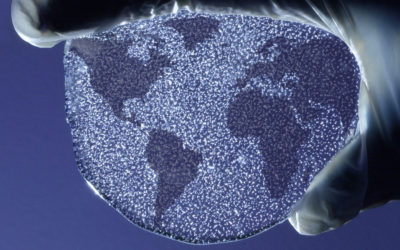
Science strategy
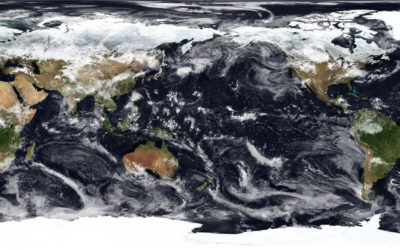
Private: Our Grand Challenges for polar science
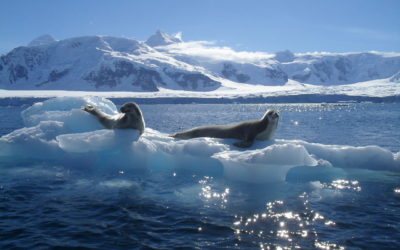
Ecosystems – valuing sustainability
